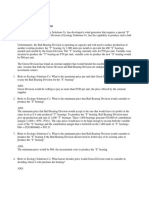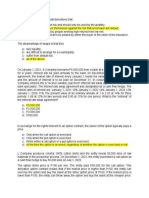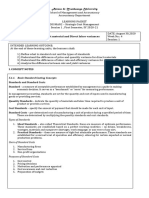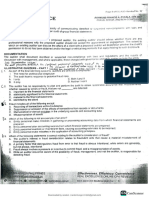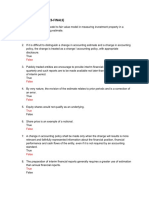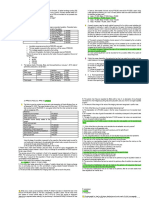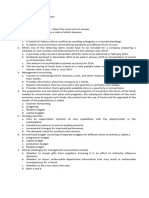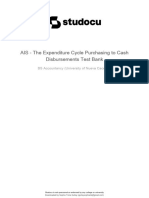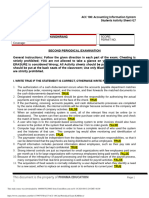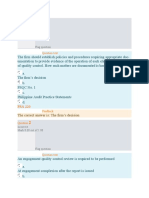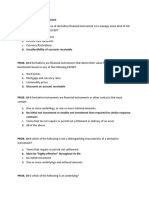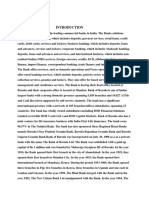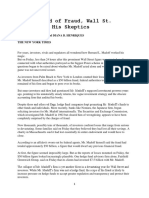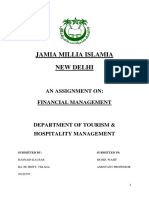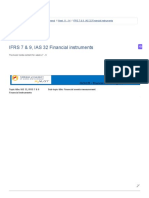0% found this document useful (0 votes)
1K views6 pagesSRC Quiz
The document is a quiz on the Securities Regulation Code, covering various topics such as investment contracts, registration of securities, insider trading, and mandatory tender offers. It includes multiple-choice questions that test knowledge on definitions, requirements, and regulations related to securities. The quiz aims to assess understanding of key concepts and rules governing securities transactions.
Uploaded by
2054560Copyright
© © All Rights Reserved
We take content rights seriously. If you suspect this is your content, claim it here.
Available Formats
Download as PDF, TXT or read online on Scribd
0% found this document useful (0 votes)
1K views6 pagesSRC Quiz
The document is a quiz on the Securities Regulation Code, covering various topics such as investment contracts, registration of securities, insider trading, and mandatory tender offers. It includes multiple-choice questions that test knowledge on definitions, requirements, and regulations related to securities. The quiz aims to assess understanding of key concepts and rules governing securities transactions.
Uploaded by
2054560Copyright
© © All Rights Reserved
We take content rights seriously. If you suspect this is your content, claim it here.
Available Formats
Download as PDF, TXT or read online on Scribd
/ 6



